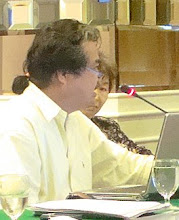These communities are composed of 110 ethnolinguistic groups found in the various parts of the archipelago. On account of centuries-long isolation, they have generally fallen behind the mainstream population in terms of socio-economic development. Defined as a group of people or homogenous societies identified by self ascription and ascription by others, who have continuously lived as organized community or communally bounded and defined territory, and who have, under claims of ownership since time immemorial, occupied, possessed and utilized such territories sharing common bond of language, customs, traditions and other distinctive cultural traits, or who have through resistance to political, social and cultural inroads of colonization, non-indigenous religions and cultures became historically differentiated from the majority Filipinos. They are likewise peoples who are regarded as indigenous on account of their descent from the population which inhabited the country, at the same time of conquest, of the establishment of present state boundaries, who retain some or all of their own social, economic, cultural and political institutions, but who may have been displaced from their traditional domains or who may resettled outside their ancestral domains.
See the profiles of the different Ethnolinguistic Groups of the Philippines:
http://www.ncip.gov.ph/resources/ethno_alphabet.php



No comments:
Post a Comment